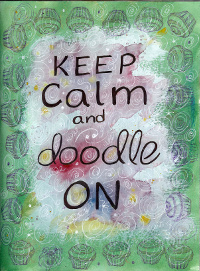

First, you must describe emotional and mental events in the way they appear to you using objective methods.Here’s the basis of cognitive journaling: This does take time, but cognitive journaling could provide a stepping stone on the path to positive thinking. Of course, in order to bring about change, we have to think and react differently. When we try to alter our perception of the world, we must fight against our current thinking and understanding of it as you might know, this can seem utterly impossible.

This is one of the biggest reasons that people find change so difficult, because we literally have to rewire our brain to alter its deeply entrenched programming. Ragnarson says that other types of journaling prevent us from changing the way we think because they reinforce our “preference for maintaining internal coherence.” This is basically our mind’s way of understanding the world and helping us survive based on our perception of it. Here’s how cognitive journaling can halt negative thinking:ĭr. Below, we’ll explain why cognitive journaling can provide an effective way to overcome unhelpful thinking habits. So, Ragnarson wanted to try out a type of journaling that would help people remain objective while still writing down their innermost thoughts and feelings. Instead, most people end up coming up with more evidence for their beliefs, which can reinforce unhealthy thinking patterns. Richard Ragnarson, close to finishing his residency in psychiatry, says his journaling method is a “repeatable process that you can use to increase your self-awareness, challenge your assumptions, and experiment with new types of thinking.” He goes on to explain that while writing down your thoughts in a journal can help you observe your own thinking, traditional journaling does nothing to change your current way of thinking.
#Free thought journaly how to
Read the Instructions for Authors for information on how to submit your article.What if you could combine aspects of CBT (cognitive behavioral therapy) with journaling in order to combat negative thinking? Well, now you can: a licensed medical doctor in Europe invented something called “cognitive journaling,” which can help people “unravel their thinking.”ĭr. For more information, please visit the STAR website.Īuthors can choose to publish gold open access in this journal.
#Free thought journaly free
Our STAR initiative offers individual researchers in Africa, South Asia and many parts of South East Asia the opportunity to gain one month’s free online access to 1,300 Taylor & Francis journals. Taylor & Francis/Routledge are committed to the widest possible dissemination of its journals to non-profit institutions in developing countries. All peer review is double-blind and submission is online via ScholarOne Manuscripts. To highlight the case of China, which, with its stunning economic development and social transformation, has challenged old wisdom of development while leaving profound questions to be answered with respect to its own future as well as its role in a world of economic, ecological, and to a great extent, political crises.Īll submitted manuscripts are subject to initial appraisal by the Editor, and, if found suitable for further consideration, to peer review by independent, anonymous expert referees. To emphasize the position of developing countries and bring attention to the practical, theoretical and methodological efforts made within non-Western contexts, in view of the fact that the future of human development requires cultural diversity to counterbalance the linear evolutionism characteristic of most modern Western theories.

To build a global forum for dialogue among various social currents, as an attempt to better integrate different perspectives and reconcile different needs and interests. To provide a multi-disciplinary forum for reflection on and insight to the major problems facing humanity (energy, environment, poverty, war, etc.), where living and breathing contemporary experiences can be processed into works of theoretical depth and scholarly rigor.

International Critical Thought aims to cultivate, encourage and facilitate the development and dissemination of thinking and scholarship responding to the profound social, political, cultural and economic changes taking place in the world today.


 0 kommentar(er)
0 kommentar(er)
